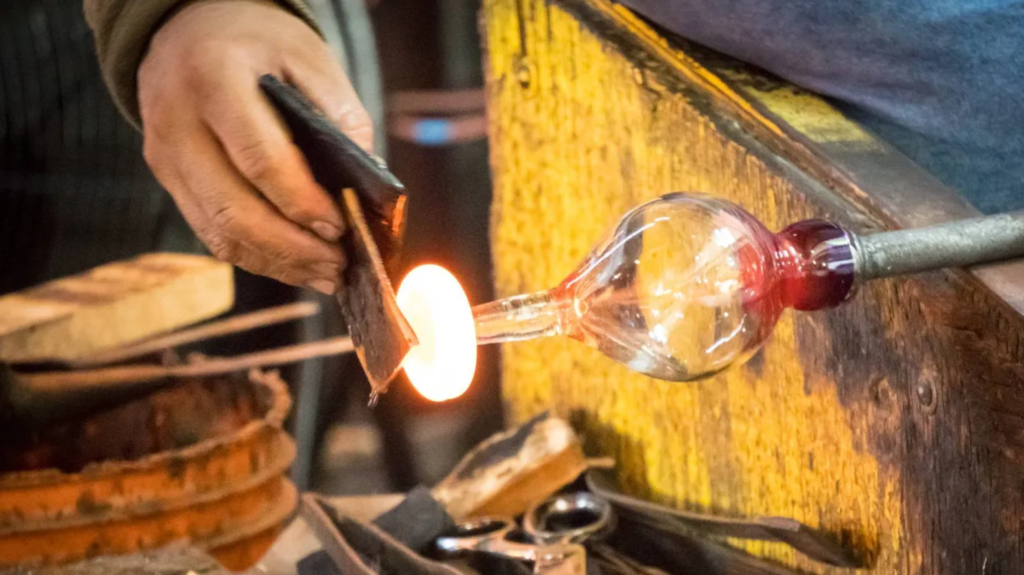Scientists have invented a sustainable glass that could revolutionize the industry.
At any given moment, if you just look around you, you will see something made of glass. Indeed, glass is everywhere, and it is essential to human life.
It’s also, however, non-biodegradable, which causes long-term environmental hazards and social burdens.
Now, a research group led by Prof. Yan Xuehai from the Institute of Process Engineering (IPE) of the Chinese Academy of Sciences has engineered a family of eco-friendly glass that is both biodegradable and biorecyclable and will have a minimal environmental footprint, according to a press release published on Friday.
The new glass is of biological origin and fabricated from biologically derived amino acids or peptides.
Up until now, the development of such eco-friendly glass of biological origin has been very challenging because biomolecules possess poor thermal stability and decompose easily at the high temperatures typically used in glass manufacturing.
To overcome this problem, the researchers used chemically modified amino acids and peptides to fabricate biomolecular glass with biodegradability and biorecyclability features through the classic “heating-quenching” procedure.
Functional properties and eco-friendly features
They then proceeded to track the glass-forming ability, glass-transition-related kinetic and thermodynamic parameters of the material, as well as glass performance in vitro and in vivo.
They were surprised to find that the biomolecular glass based on derivatives of amino acids or peptides showed a unique combination of functional properties and eco-friendly features, including excellent optical characteristics, good mechanical properties, and flexible processability, as well as the desired biodegradability and biorecyclability.
“The concept of biomolecular glass, beyond the commercially-used glasses or plastics, may underlie a green-life technology for a sustainable future,” said Xuehai in the statement.
“However, the biomolecular glass is currently in the laboratory stage, and far from large-scale commercialization.”
The study was published in Science Advances on March 17.
Study abstract:
Glass is ubiquitous in life and widely used in various fields. However, there is an urgent need to develop biodegradable and biorecyclable glasses that have a minimal environmental footprint toward a sustainable society and a circular materials economy. Here, we report a family of eco-friendly glasses of biological origin fabricated using biologically derived amino acids or peptides through the classic heating-quenching procedure. Amino acids and peptides with chemical modification at their ends are found able to form a supercooled liquid before decomposition and eventually glass upon quenching. These developed glasses exhibit excellent glass-forming ability and optical characteristics and are amenable to three-dimensional–printed additive manufacturing and mold casting. Crucially, the glasses show biocompatibility, biodegradability, and biorecyclability beyond the currently used commercial glasses and plastic materials.
Article Credits: Interesting Engineering
